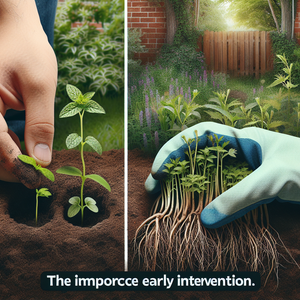Philanthropy and Profit: The Dual Legacy of Bob Kraft

Bob Kraft’s journey to wealth began in a modest setting, where he learned the value of hard work and determination. After earning a degree from Columbia University and an MBA from Harvard Business School, Kraft founded International Forest Products in 1972. This company laid the groundwork for his financial success, allowing him to build a diverse business empire known as The Kraft Group, which includes interests in manufacturing, real estate, sports, and more. Kraft’s acquisition of the New England Patriots in 1994 marked a significant turning point in his career. Under his ownership, the team has achieved remarkable success, including multiple Super Bowl championships, enhancing Kraft's wealth and public profile. However, what distinguishes Kraft from many other billionaires is his unwavering commitment to philanthropy. He firmly believes that with great wealth comes great responsibility, and his success in business has provided him with the resources to make substantial contributions across various causes.
Philanthropic Initiatives and Impact
Bob Kraft’s philanthropic efforts are extensive and multifaceted, demonstrating his belief in the transformative power of giving. One of his most significant contributions is to education and youth programs. The Kraft Family Foundation has donated millions to enhance educational opportunities for at-risk children, offering scholarships and funding for after-school initiatives. For instance, the foundation has actively supported the Boston public school system, enriching the educational experience for countless students and helping to bridge the opportunity gap. Kraft's commitment to health and wellness is equally noteworthy. He has collaborated with local hospitals and organizations to promote medical services, significantly improving community health outcomes. The Kraft Center for Community Health at Massachusetts General Hospital exemplifies how his investments have bolstered healthcare access for underserved populations. Furthermore, Kraft's contributions to medical research have supported advancements in various fields, demonstrating his dedication to fostering innovation and improving lives. In addition to education and health, Kraft has made significant strides in advocating for social justice. He has publicly condemned discrimination and supported initiatives aimed at promoting equality and inclusion. His involvement in campaigns like the New England Patriots’ “My Cause, My Cleats,” which encourages players to raise awareness for social issues, showcases his commitment to leveraging his platform for meaningful change.
The Interplay Between Philanthropy and Business
Kraft’s philanthropic endeavors not only reflect his personal values but also enhance his business brand. In today's marketplace, where corporate social responsibility is paramount, Kraft’s initiatives resonate with consumers who increasingly prefer to support brands that contribute positively to society. This alignment between his philanthropic actions and business strategy creates a positive feedback loop, where charitable efforts bolster the Kraft brand, ultimately leading to increased customer loyalty and trust. Moreover, Kraft’s philanthropic reputation has played a crucial role in attracting top talent to his organizations. Today's workforce is driven by values and seeks employers whose missions align with their own. Kraft's commitment to social responsibility positions The Kraft Group as an appealing workplace, fostering employee satisfaction and engagement. This synergy between philanthropy and business not only enhances the workplace culture but also contributes to a motivated and high-performing workforce.
Bob Kraft’s evolution from humble beginnings to billionaire tycoon is a testament to his exceptional business acumen, but it is his unwavering dedication to philanthropy that truly defines his legacy. By skillfully intertwining profit with purpose, Kraft has created a powerful model for other business leaders to emulate. His initiatives in education, health, and social justice illustrate that giving back can yield significant benefits, not only for the communities served but also for the businesses that champion these causes. As we reflect on Kraft’s dual legacy, it becomes evident that true success is not merely measured by financial wealth but by the positive impact one can have on the world. In a time when the intersection of profit and philanthropy is more pertinent than ever, Bob Kraft stands as a shining example of how one can successfully navigate both realms.
Corporate Social Responsibility (CSR) Manager
Coca-Cola, Unilever
Core Responsibilities
Develop and implement CSR strategies that align with the company’s mission and values.
Manage community engagement initiatives and assess their impacts on local communities.
Collaborate with various departments to integrate social responsibility into business practices.
Required Skills
Strong understanding of sustainability and social impact metrics.
Excellent communication skills for stakeholder engagement.
Experience in project management and strategic planning.
Nonprofit Program Director
Nonprofit organizations, foundations, community service agencies
Core Responsibilities
Oversee the planning, implementation, and evaluation of programs that advance the organization's mission.
Manage budgets and funding applications, ensuring financial sustainability of programs.
Cultivate relationships with donors, volunteers, and community partners to enhance program reach and effectiveness.
Required Skills
Strong grant-writing and fundraising abilities.
Leadership experience in managing teams and volunteers.
Knowledge of nonprofit regulations and compliance requirements.
Philanthropy Advisor
Wealth management firms, private foundations, philanthropic advisory firms
Core Responsibilities
Work with high-net-worth individuals and families to develop tailored philanthropic strategies.
Conduct research on potential charitable organizations and initiatives to support.
Monitor and report on the impact of philanthropic investments and community engagement.
Required Skills
Strong analytical skills to assess the effectiveness of charitable contributions.
Excellent interpersonal skills for client relationship management.
Familiarity with social issues and trends in philanthropy.
Social Impact Analyst
Consulting firms, research organizations, corporate social responsibility departments
Core Responsibilities
Analyze data related to social programs and initiatives to measure outcomes and effectiveness.
Prepare reports and presentations to communicate findings to stakeholders.
Provide recommendations for improving social impact and strategic alignment of programs.
Required Skills
Proficiency in quantitative and qualitative research methods.
Strong analytical and problem-solving skills.
Familiarity with social impact frameworks and evaluation techniques.
Community Engagement Coordinator
Local government agencies, nonprofits, educational institutions
Core Responsibilities
Develop and manage outreach programs that foster community relations and support local initiatives.
Organize events and campaigns to promote awareness of social causes and encourage community participation.
Collaborate with local organizations to identify and address community needs.
Required Skills
Strong organizational and event planning skills.
Excellent communication and networking abilities.
Experience in volunteer management and community organizing.


